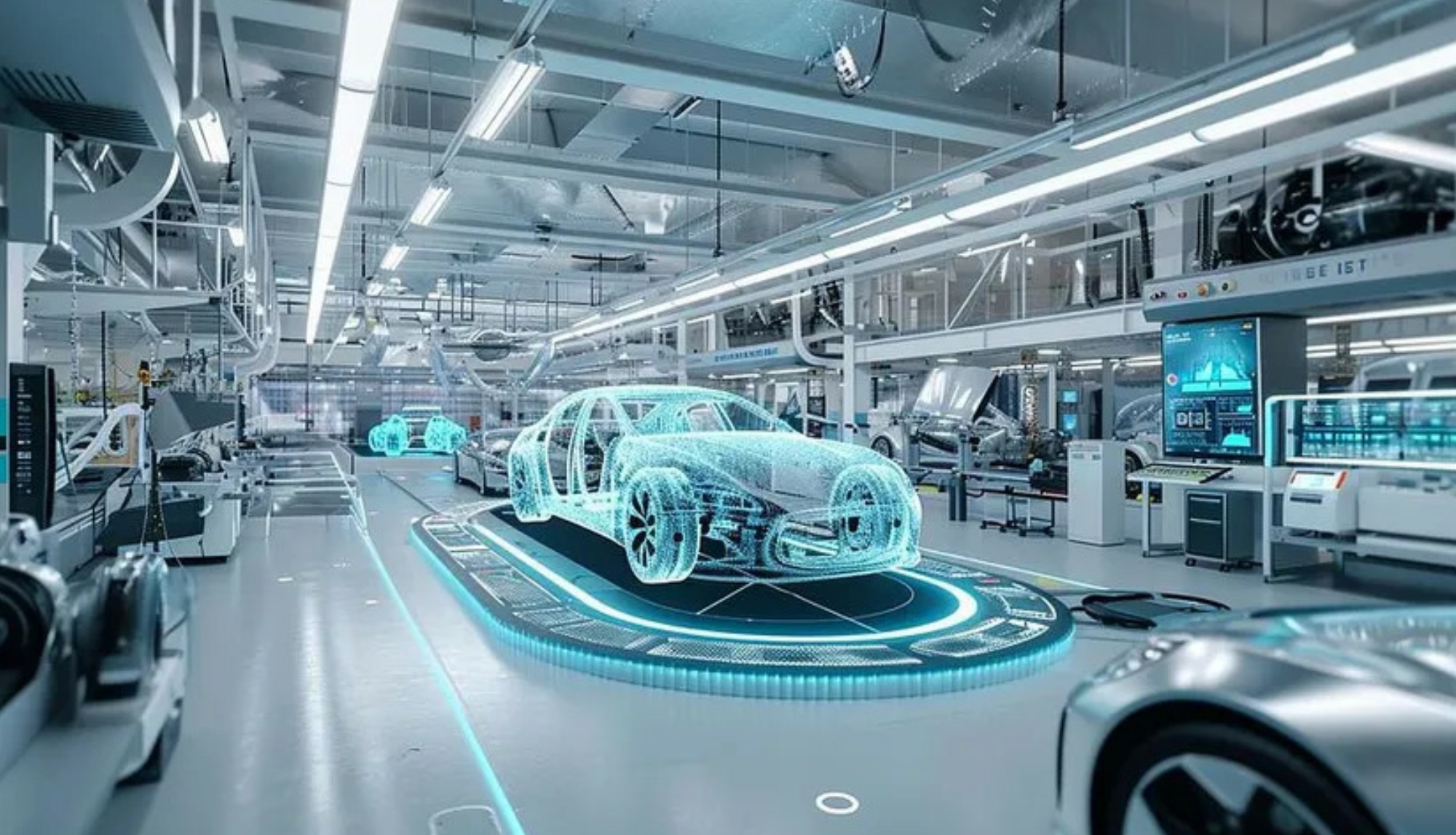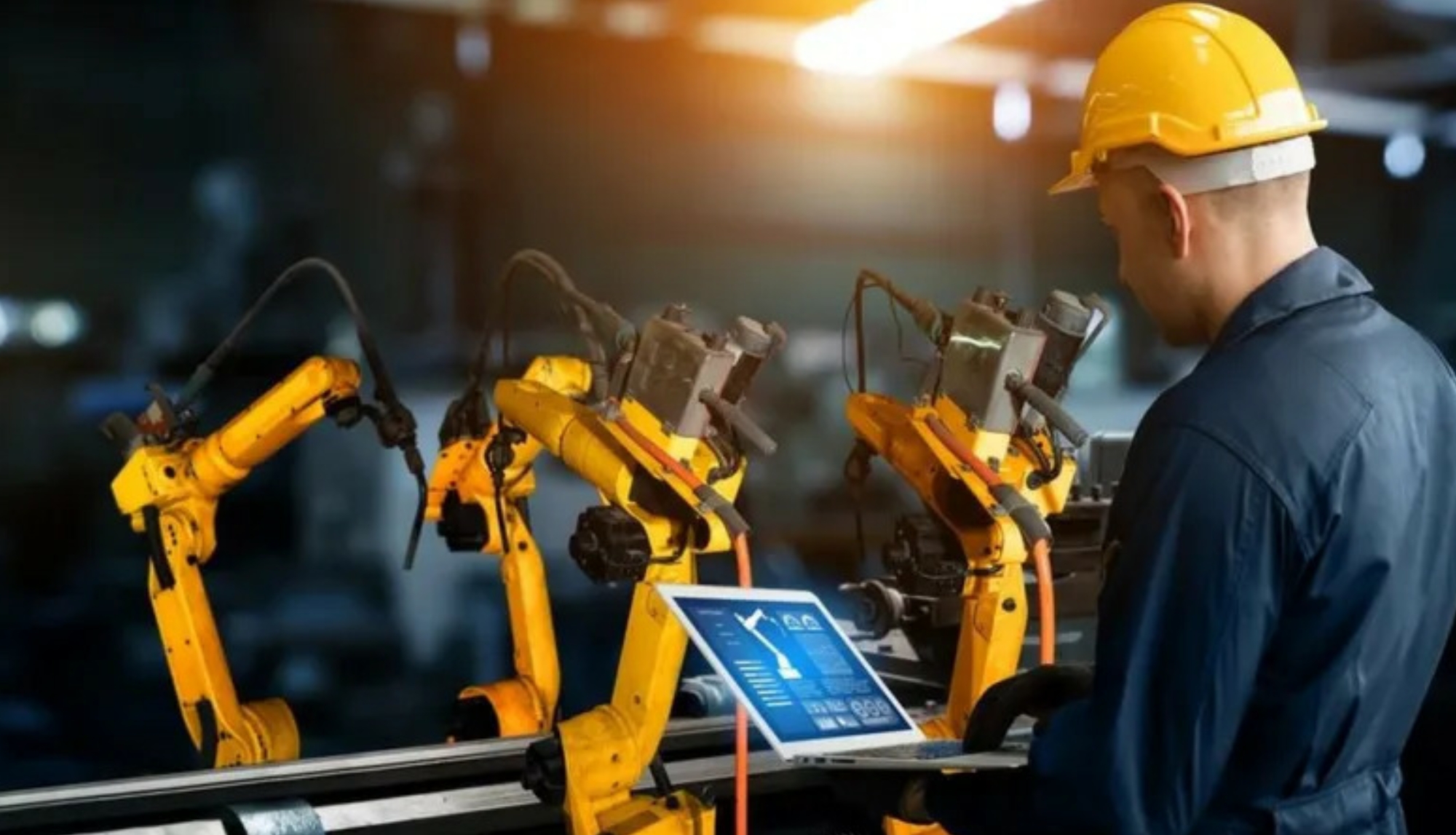
How AI is Revolutionizing the Automotive Parts Industry
Enhancing Manufacturing Processes with AI
One of the key ways AI is revolutionizing the automotive parts industry is by enhancing manufacturing processes. AI-powered robots and machines can perform tasks with a level of precision and efficiency that human workers simply cannot match. This results in faster production times, reduced labor costs, and ultimately, higher quality parts for vehicles.
Optimizing Supply Chain Management through AI
Another way AI is transforming the automotive parts industry is through the optimization of supply chain management. AI algorithms can analyze data on factors such as demand forecasts, production capacity, and inventory levels to help manufacturers make informed decisions about sourcing and distribution. This improves efficiency and reduces the risk of disruptions in the supply chain.
Improving Customer Service with AI
AI technology is also being used to revolutionize customer service in the automotive parts industry. Chatbots powered by AI can provide instant assistance and support to customers, answering questions about products, helping with troubleshooting, and even facilitating the ordering process. This not only enhances the overall customer experience but also helps companies streamline their operations.
Increasing Automation in Parts Development
With the help of AI, automotive parts manufacturers are able to increase automation in the development process. Designing and testing parts can be done more quickly and efficiently using AI algorithms, leading to faster innovation and improved performance. This allows companies to stay ahead of the competition and meet the evolving needs of consumers.
Enhancing Predictive Maintenance Capabilities
AI technology is also revolutionizing the automotive parts industry by enhancing predictive maintenance capabilities. By analyzing data from sensors and other sources, AI algorithms can predict when parts are likely to fail and alert manufacturers and consumers in advance. This proactive approach reduces downtime and maintenance costs while improving overall safety on the road.
Humanizing the Future of Automotive Parts
As AI continues to revolutionize the automotive parts industry, it is important to remember the human element in this transformation. While AI technology is driving efficiency and innovation, it is human workers who are ultimately responsible for leveraging this technology to its full potential. By combining the power of AI with human expertise, the future of the automotive parts industry looks bright and full of exciting possibilities.
AI is revolutionizing the automotive parts industry in numerous ways, from enhancing manufacturing processes to improving customer service and increasing automation in parts development. By leveraging the power of AI technology, companies in the automotive parts industry are able to stay ahead of the competition, improve operational efficiency, and provide better products and services to customers. The future of the automotive parts industry is being humanized through the integration of AI, paving the way for continued growth and innovation in this dynamic industry.

Blockchain: The Future of Supply Chain Transparency in Automotive Parts
What is Blockchain?
Blockchain is a decentralized, distributed ledger technology that securely records and verifies transactions across a network of computers. Each transaction is stored in a “block” that is linked to the previous block, creating a chain of information that is immutable and transparent. This means that once a transaction is recorded on the blockchain, it cannot be altered or deleted, providing a high level of security and trust.
The Benefits of Blockchain in Supply Chain Management
One of the key benefits of blockchain technology in supply chain management is its ability to provide a complete and transparent record of every transaction that occurs within the network. This can help automotive companies track the movement of parts from the manufacturer to the end customer, ensuring that products are genuine and have not been tampered with. In addition, blockchain can also improve efficiency by reducing paperwork, streamlining processes, and eliminating the need for intermediaries.
Enhancing Supply Chain Transparency with Blockchain
Blockchain technology can greatly enhance supply chain transparency in the automotive industry by providing real-time visibility into the movement of parts and products. This can help companies identify and address any potential issues or bottlenecks in the supply chain, such as delays, defects, or fraud. By utilizing blockchain, automotive companies can ensure that their products are authentic, safe, and compliant with regulations.
The Role of Blockchain in Ensuring Product Authenticity
Counterfeit automotive parts pose a significant threat to the safety and integrity of vehicles. Blockchain technology can help combat this issue by providing a tamper-proof record of each part’s origin, history, and authenticity. This can help automotive companies verify the legitimacy of their suppliers and prevent the distribution of counterfeit parts in the market. By leveraging blockchain, companies can build trust with their customers and uphold their reputation for quality and reliability.
Overcoming Challenges and Adopting Blockchain
While blockchain technology holds great promise for improving transparency in the automotive supply chain, there are still challenges that must be overcome in order to achieve widespread adoption. These include concerns about data privacy, scalability, interoperability, and regulatory compliance. However, with ongoing research, collaboration, and innovation, these challenges can be addressed, paving the way for a more secure and transparent supply chain ecosystem.
The Future of Blockchain in Automotive Supply Chain Transparency
As the automotive industry continues to evolve, blockchain technology will play an increasingly important role in ensuring supply chain transparency and integrity. By humanizing the technology and highlighting its benefits for consumers, manufacturers, and regulators alike, we can create a more trustworthy and sustainable supply chain that benefits everyone involved. The future of supply chain transparency in automotive parts is bright, thanks to the power of blockchain technology.
Blockchain is revolutionizing the way that automotive parts are tracked, verified, and authenticated throughout the supply chain. By leveraging this technology, companies can enhance transparency, ensure product authenticity, and build trust with their customers. As we look towards the future, the potential for blockchain in supply chain management is limitless, offering a new era of accountability, security, and efficiency in the automotive industry.

Tech Disruptions in Auto Parts: How IoT is Changing the Way We Do Business
Enhanced Inventory Management
One of the key benefits of IoT in the auto parts industry is enhanced inventory management. By connecting individual parts and components to the internet, businesses can track inventory levels in real-time, automate ordering processes, and prevent stockouts. This not only helps businesses reduce carrying costs and minimize waste but also ensures that customers receive the parts they need when they need them.
Remote Diagnostics and Maintenance
IoT technology also enables remote diagnostics and maintenance of auto parts. Connected sensors and devices can monitor the performance of parts and components in real-time, alerting businesses to potential issues before they escalate. This proactive approach to maintenance not only helps prevent costly breakdowns but also improves overall customer satisfaction by ensuring that vehicles are running smoothly.
Predictive Analytics for Demand Forecasting
Another way that IoT is revolutionizing the auto parts industry is through predictive analytics for demand forecasting. By analyzing data from connected devices and sensors, businesses can gain insights into customer behavior, market trends, and product performance. This allows them to optimize inventory levels, anticipate customer needs, and tailor their product offerings to meet demand more effectively.
Seamless Supply Chain Management
IoT technology is also transforming supply chain management in the auto parts industry. By tracking parts and components as they move through the supply chain, businesses can identify bottlenecks, streamline processes, and reduce lead times. This enhanced visibility and control over the supply chain not only improves operational efficiency but also helps businesses deliver products to customers faster and more reliably.
Customized Products and Services
With the help of IoT technology, businesses in the auto parts industry can offer more customized products and services to customers. Connected devices and sensors can collect data on vehicle performance, driving habits, and maintenance needs, allowing businesses to tailor their offerings to meet individual customer preferences. This personalized approach not only enhances the customer experience but also drives brand loyalty and repeat business.
Improved Safety and Security
Lastly, IoT technology is enhancing safety and security in the auto parts industry. Connected sensors and devices can monitor the condition of parts and components, alerting businesses to potential safety hazards or security breaches. This proactive approach to risk management not only protects businesses from liability but also ensures that customers can trust the quality and reliability of the auto parts they purchase.
IoT technology is revolutionizing the auto parts industry in countless ways. From enhanced inventory management to remote diagnostics and maintenance, predictive analytics, seamless supply chain management, customized products and services, and improved safety and security, businesses are leveraging IoT to drive efficiency, innovation, and growth. By embracing these technological disruptions and humanizing their approach to doing business, auto parts companies can stay ahead of the curve and deliver value to customers in new and exciting ways.


